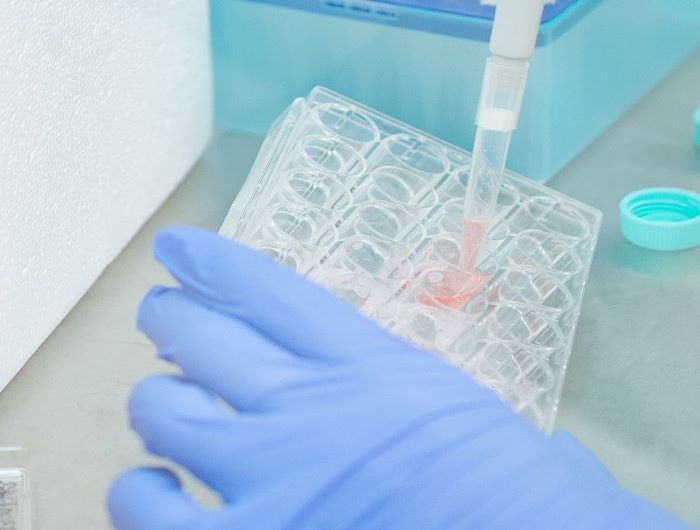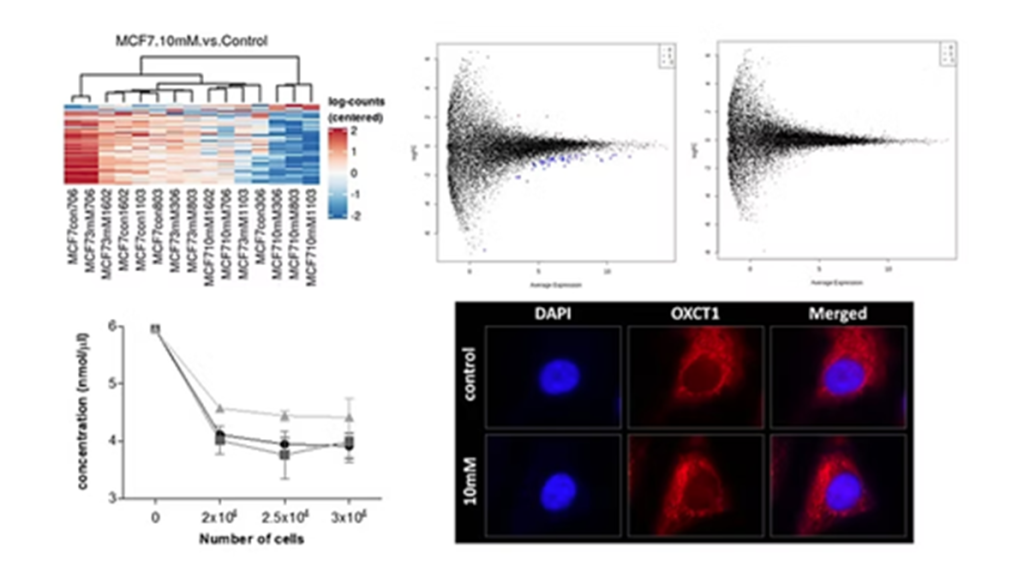The ketogenic diet (KD) based on high fat (over 70% of daily calories), low carbohydrate, and adequate protein intake, has become popular due to its potential therapeutic benefits for several diseases including cancer. Under KD and starvation conditions, the lack of carbohydrates promotes the liver to produce ketone bodies (KB) from fats as an alternative source of metabolic energy. KD and starvation may affect the metabolism in cancer cells, affecting tumor properties. Due to controversial results of ketone bodies on cancer cell growth, survival, and progression we hypothesized that effect of KB may affect cancer cells in two different ways, simultaneously. On one hand, KB may affect tumor oncogenicity via signaling, thus influencing gene expression. On the other hand, KB may be used by cancer cells as alternative source of energy in a state of nutrient deficiency. Both possibilities are dependent on the natural ability of the tumor cells to absorb and to utilize KB. Thus, we aim to elucidate the effect of KBs on cancer cell metabolism, oncogenicity, survival, proliferation and migration using model of breast cancer cell lines under low glucose and starvation conditions.

Principal Investigator: Dr. Elemeleh Nesher
The Tumor Cells Biology Lab
This research was published in a scientific journal:
Hadas Fulman-Levy, Raichel Cohen-Harazi, Bar Levi, Lital Argaev-Frenkel, Ifat Abramovich, Eyal Gottlieb, Sarah Hofmann, Igor Koman, and Elimelech Nesher, Metabolic alterations and cellular responses to β-Hydroxybutyrate treatment in breast cancer cells, Cancer Metab. 2024; 12: 16, Published online 2024 May 29.


